AframNews.com
“Addressing Current & Historical Realities Affecting Our Community”








“Addressing Current & Historical Realities Affecting Our Community”







By: Roy Douglas Malonson
In classrooms across America, a quiet war is raging—a battle not fought with weapons, but with erasers, red pens, and legislative bills. ey call it “progress,” “curriculum reform,” and “education standards.” We call it what it is: erasure. Erasure of Black history. Erasure of truth. Erasure of the struggles and contributions of generations who built this country with blood, brilliance, and perseverance. Across multiple states, newly passed laws are restricting the teaching of topics deemed “divisive,” “uncomfortable,” or “politically motivated.” In e ect, these measures target discussions about systemic
racism, the civil rights movement, slavery, Reconstruction, Jim Crow, and modern racial justice movements. Educators are being silenced, textbooks are being sanitized, and students are being robbed of the full truth of America’s past and present.
e erasure is not accidental. It is strategic. By controlling what future generations learn, the architects of these policies hope to control what future generations believe. If young people are not taught about the horrors of slavery, the resilience of the civil rights movement, or the ongoing ght against systemic rac- History on pg. 3

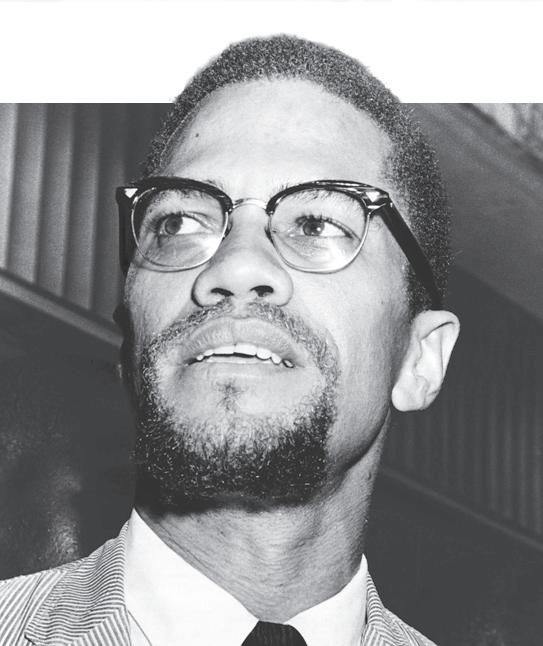



MALCOLM X LETTER SELLS FOR $11,344
An important typed letter signed by Malcolm X, penned just days a er his controversial “chickens coming home to roost” comments regarding President John F. Kennedy’s assassination sold for $11,344 by Nate D. Sanders Auctions on ursday evening.
Dated December 11, 1963, the letter provides remarkable insight into Malcolm X’s mindset following the public outcry and his subsequent 90-day suspension from public speaking by Nation of Islam leader Elijah Muhammad. Written on his personal Malik Shabazz Islamic stationery, Malcolm X responds to an encouraging letter to Gloria Owens- Maceo X Owens’ sister. Maceo X. Owens was the secretary at Muhammad’s Mosque No. 7 in Harlem where Malcolm X preached alongside Louis Farrakhan.
In the letter, he directly addresses his situation: “I am still the Minister of Muhammad’s Mosque but my speaking and public appearances have been curtailed ‘suspended’ for an inde nite period. I have kept a very fast pace and this is the only way I could ever get any rest.”
He further employs a powerful metaphor, referencing his suspension and unwavering conviction: “ e only way to stop a rooster from crowing is to stop the sun from rising. When the rooster sees the light by nature it is time for him to crow. Once we know who the devil is, it is di cult to keep all that light to ourselves. We just have to crow.” Bidding for the letter began at $7,500.









ere is a time-honored spiritual adage that emphatically declares that common sense is not common. 21st century America under the ungodly sel sh Presidential leadership of Donald J. Trump has become the classic example of the adage. us: “Fear of the Lord is the beginning of knowledge; but fools despise wisdom and instruction.” (Proverbs 1: 7). A dogmatic, closed-minded person is what King Solomon called a fool. Wisdom comes from God and prevents self-destruction. A spiritual word to the wise, “don’t be a know it all”. Instead, be Godly open to the advice and wise counsel of others, because: “Fools make a mock at sin: but among the righteous there is favour.” (Proverbs 14: 9). More importantly, “righteousness exaltheth a nation: but sin is a reproach to any people.” (Proverbs 14: 34). Attitude is LIFE. Our attitudes in uence our personality structures. Individuals cannot control what happens to them. Individuals can only control how they spiritually respond to what happens to them. is is why the secret to eternal happiness is internal self-control, because the lying spirit of the devil is fathering the physical worldly environment: “wherefore putting away lying, speak every man truth with his neighbor: for we are members one of another.” (Ephesians 4:
25). Truth unites. Lies divide. erefore, as children of light, we must learn to walk in love, spiritual harmony, and societal peace with one another, and “let no man deceive you with vain words: for because of these things cometh the wrath of God upon the children of disobedience. Be not ye partakers with them.” (Ephesians 5: 6-7). MAGACult spiritual words to the wise ought to be su cient. erefore, embrace the spiritual truth of God that equal is equal, not more or less equal, because: “as it is appointed unto men once to die, but a er this the judgment:” (Hebrews 9: 27a). Death is no respecter of skin-tone, sex-status or sexual orientation, or any socio-economic statuses. Death is e Great Equalizer!
e basic premise of the Maga Trump Cult is that inclusive multi-cultural democracy is the enemy, because their desire is White Privilege Autocracy, Russian style. erefore, President Trump has initiated a devilish-wrecking-ball approach to governance, not an inclusive multi-cultural dimensional approach. In fact, the objective of President Trump and his Co-President, Elon Musk, is to privatize the federal government for personal gain. No doubt about it, advertising, promoting, and attempting to sell Telsa cars, utilizing e White House as a car dealership is proof positive. erefore, will someone please tell President Trump and his MAGA-Cult followers that the “rule of law” in a democracy is a spiritual moral law. Even though manmade laws are imperfect, because fallible
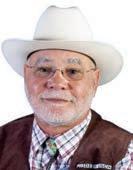
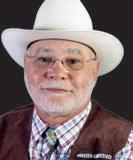
Across America, Black history is disappearing from the classroom—and it’s no accident. New laws are banning lessons on racism, slavery, and civil rights under the excuse of “protecting students.” But let’s be clear: protecting who, exactly? Certainly not our children. When textbooks skip over slavery or rewrite the civil rights movement into a footnote, we lose more than history—we lose power. If Black children grow up not knowing the battles their ancestors fought, how will they ever be ready to ght their own? is is bigger than banning books. It’s about erasing identity. Diluting culture. Shaping a future where Black excellence is hidden, not celebrated.








Here’s what we must do right now:
• Demand full Black history education at school board meetings.
• Support Black teachers, authors, and historians pushing truth into classrooms.
• Create our own community programs: a er-school sessions, summer camps, even Saturday history clubs.
• Vote in every local election—school board races included. ese positions control what our kids are taught!
Key fact: Over 90% of public school curriculum changes happen at the local level—not in Washington. at means we have the power.
If we stay silent, we allow our children’s minds to be shaped by lies. If we rise up, we reclaim our right to be seen, heard, and honored in every classroom. ey’re hoping we don’t notice. ey’re betting we won’t ght back.

Let’s prove them wrong. e ght for Black education is the ght for our future—and it starts now.







ism, how can they recognize—and resist—similar injustices today?
In states like Florida, Texas, and Tennessee, sweeping bans have been implemented under the banner of “parental rights” and “curriculum transparency.” Entire lesson plans have been gutted. Teachers are being advised to tread carefully or risk their jobs. Some are even warned not to mention terms like “white privilege” or “racial inequality” for fear of political backlash.
e attack on Black history extends beyond the classroom. It is reinforced in public
discourse, where politicians dismiss concerns as “woke hysteria,” and where school board meetings have become battlegrounds lled with shouting matches over what our children should be allowed to know. But when politicians sanitize the past, it is not for the sake of the children—it is for the protection of the powerful.
e stakes are too high for silence. Black history is American history. From the slave ships to the cotton elds, from Harlem to Montgomery, from the Voting Rights Act to Black Lives Matter, the story of Black America is the story of America itself. To sup-
press it is to deny the soul of this nation.
Our ancestors did not endure chains, whips, water hoses, bomb threats, and burning crosses so their descendants could be taught lies or half-truths. ey fought for freedom—not just physical freedom, but freedom of thought, freedom of identity, freedom of knowledge. We dishonor their sacri ces when we allow their stories to be erased.
Students of all backgrounds deserve an honest education. ey deserve to learn about the brilliance of gures like Ida B. Wells, Carter G. Woodson,








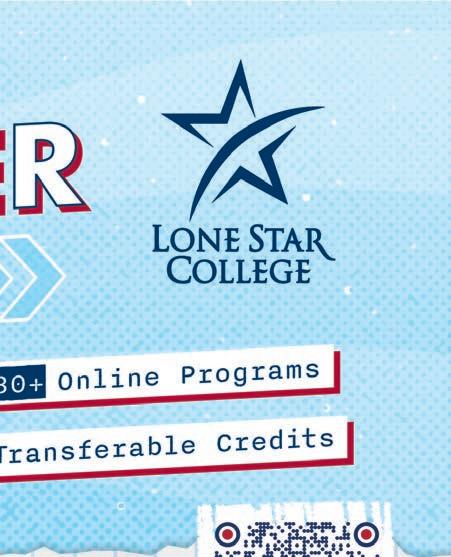

1861. e American Civil War began on April 12, 1861, when Confederate forces red on Fort Sumter, a federal fort in Charleston Harbor, South Carolina.
1863 . Lincoln’s Emancipation Proclamation goes into e ect, changing the legal status of 3 million slaves in designated areas of the Confederacy from “slave” to “free.”
1865. e thirteenth amendment passed, abolishing slavery throughout the United States.
- In 1894, Carver became the rst African American to earn a Bachelor of Science degree. Impressed by Carver’s research on the fungal infections of soybean plants, his professors asked him to stay on for graduate studies.
- First African American U.S. Supreme Court Justice: urgood Marshall became the rst African American to serve on the U.S. Supreme Court in 1967.
- First African American Major League Baseball Player: Jackie Robinson broke the color barrier in Major League Baseball in 1947 when he joined the Brooklyn Dodgers.
- First African American Oscar Winner: Hattie McDaniel became the rst African American to win an Academy Award for Best Supporting Actress in 1940 for her role in “Gone With the Wind”.
- First African American Woman to Earn a Medical Degree: Rebecca Lee Crumpler graduated from the New England Female Medical College in 1864, becoming the rst African American woman to earn a medical degree.
- First African American U.S. Senator: Hiram Rhodes Revels was elected to the U.S. Senate in 1870.
1865. On June 19, Union soldiers arrive in Galveston, Texas to spread the news of the Civil War end and subsequent freedom of slavery. is will eventually be celebrated as “Juneteenth”.




1868. e fourteenth amendment is passed, guaranteeing citizenship rights and equal protection under law.















1870. e eenth amendment is passed, guaranteeing that a citizen’s right to vote would not be denied on account of race, color, or previous condition of servitude.









1885. A majority of Southern states pass individual state laws requiring separate schools for black and white students.


































En las aulas de todo Estados Unidos, se libra una guerra silenciosa: una batalla que no se libra con armas, sino con borradores, rotuladores rojos y proyectos de ley. La llaman “progreso”, “reforma curricular” y “estándares educativos”. Nosotros la llamamos por su nombre: borrado. Borrado de la historia negra. Borrado de la verdad. Borrado de las luchas y contribuciones de generaciones que construyeron este país con sangre, brillantez y perseverancia. En varios estados, leyes recién aprobadas restrin-
gen la enseñanza de temas considerados “divisivos”, “incómodos” o “políticamente motivados”. En efecto, estas medidas se dirigen a debates sobre el racismo sistémico, el movimiento por los derechos civiles, la esclavitud, la Reconstrucción, las leyes de Jim Crow y los movimientos modernos por la justicia racial. Se silencia a los educadores, se desinfectan los libros de texto y se priva a los estudiantes de la verdad completa del pasado y el presente de Estados Unidos.
La historia se repite en tiempo real, invirtiendo el reloj.





Una importante carta mecanogra ada rmada por Malcolm X, escrita pocos días después de sus controvertidos comentarios sobre el asesinato del presidente John F. Kennedy, se vendió por 11.344 dólares en la casa de subastas Nate D. Sanders el jueves por la noche.
Fechada el 11 de diciembre de 1963, la carta ofrece una perspectiva notable sobre la mentalidad de Malcolm X tras la indignación pública y su posterior suspensión de 90 días para hablar en público por parte del líder de la Nación del Islam, Elijah Muhammad. Escrita en su membrete islámico personal de Malik Shabazz, Malcolm X responde a una carta de aliento dirigida a Gloria Owens, hermana de Maceo X Owens. Maceo X Owens era secretario de la Mezquita Muhammad n.º 7 en Harlem, donde Malcolm X predicó junto a Louis Farrakhan. En la carta, aborda directamente su situación: “Sigo siendo el ministro de la Mezquita de Mahoma, pero mis discursos
:
:
Por:Jarvis Johnson
¿Cuándo empezamos a esperar tan poco de nuestros funcionarios electos? O quizás la pregunta más acertada sea: ¿acaso los candidatos se han vuelto tan decepcionantes que los votantes simplemente han bajado el listón y se han conformado con quien más grita?
los republicanos controlan la Cámara de Representantes, el Senado, la Presidencia, la Corte Suprema y la mayoría de los jueces federales, ¿cómo planean convertir sus promesas en realidad?

algo que sonaba bien o nos
Postularse a un cargo público es uno de los pocos trabajos de alto riesgo en este país que no requiere experiencia, formación ni capacidad demostrada para producir resultados. En el entorno político actual, parece que basta con un nombre conocido, una voz potente y un eslogan pegadizo para ganar votos. Hemos elegido a personalidades de la televisión, comediantes, atletas —personas con poca o ninguna experiencia en gobierno— porque dijeron algo que sonaba bien o nos infundía esperanza.
Los republicanos han demostrado que no solo son rmes ideológicamente, sino que a menudo son retaliativos. Trump ha amenazado abiertamente con retirar la nanciación a las universidades que se le oponen y a los estados que no aprueban las leyes que él apoya. Entonces, ¿cómo puede un demócrata a rmar que va a “patearles el trasero a los republicanos” y aún así esperar que se aprueben leyes signi cativas en un gobierno controlado por el
gobierno controlado por el Partido Republicano?

En cada ciclo electoral, los nos dicen lo que queremos


En cada ciclo electoral, los candidatos de ambos partidos nos dicen lo que queremos oír. Los demócratas, por ejemplo, suelen declarar:
gan. Debemos insistir en que cada candidato describa cómo pretende obtener resultados. ¿Qué coaliciones construirán? ¿Qué concesiones están dispuestos a hacer? ¿Qué proyectos de ley especí cos impulsarán? ¿Y cómo se las arreglarán con un gobierno que les escoge en contra? Muchos candidatos se postulan a cargos estatales o federales sin reconocer una verdad fundamental: toda la política es local. La grandilocuencia puede llamar la atención, pero no aporta dinero a nuestras escuelas, ni arregla nuestras carreteras, ni nancia viviendas asequibles. Gritar por un micrófono y “hacerse cargo de la otra parte” no debería ser el nuevo estándar para el éxito

de nido: un plan para brindar recursos reales y tangibles a la comunidad a la que sirve. Esto incluye:
• Infraestructura: Prevenir inundaciones, mejorar la movilidad y garantizar que nuestros vecindarios estén construidos para perdurar.
• Vivienda: Defender lugares asequibles y accesibles para vivir que satisfagan las necesidades de todos los niveles de ingresos.
• Desarrollo empresarial: Crear empleos, apoyar a las pequeñas empresas e impulsar las economías locales.
• Educación: No solo luchar por nanciación, sino explicar cómo conseguirla y cómo usarla e cazmente.
Los votantes deben empezar
Los votantes deben empezar a exigir algo más que retórica


incendiaria. “Luchar por nosotros” no es un plan, es un eslonuevo estándar para el éxito político.

Un funcionario electo digno llega a la mesa con un plan
Un funcionario electo digno llega a la mesa con un plan

El liderazgo signi ca más que volumen. Signi ca visión. Es hora de que los votantes


El liderazgo signi ca más que volumen. Signi ca visión. Es hora de que los votantes exijan ambas.


“Voy a luchar por ti. Lucharé


teger los derechos reproductivos de las mujeres. Lucharé



“Voy a luchar por ti. Lucharé para ampliar Medicare y Medicaid. Lucharé para proteger los derechos reproductivos de las mujeres. Lucharé para nanciar completamente la educación”. Pues sí. Claro que deberías. Eso es lo mínimo indispensable. Pero esta es la verdadera pregunta que deberían hacerse los votantes: ¿Cómo lo van a lograr?
En este clima político hiperpartidista, donde







Historial Cont.
Este borrado no es accidental. Es estratégico. Al controlar lo que aprenden las generaciones futuras, los arquitectos de estas políticas esperan controlar lo que creen. Si a los jóvenes no se les enseña sobre los horrores de la esclavitud, la resiliencia del movimiento por los derechos civiles o la lucha continua contra el racismo sistémico, ¿cómo pueden reconocer y resistir injusticias similares hoy en día? En estados como Florida, Texas y Tennessee, se han implementado prohibiciones radicales bajo el lema de los “derechos parentales” y la “transparencia curricular”. Se han desmantelado planes de clase completos. Se aconseja a los docentes que actúen con cautela o arriesgarán sus empleos. A algunos incluso se les advierte que no mencionen términos como “privilegio blanco” o “desigualdad racial” por temor a represalias políticas.
El ataque a la historia negra se extiende más allá del aula. Se refuerza en el discurso público, donde los políticos desestiman las preocupaciones como “histeria progresista” y donde las reuniones de las juntas escolares se han convertido en campos de batalla llenos de disputas a gritos sobre lo que nuestros hijos deberían saber. Pero cuando los políticos desinfectan el pasado, no es por el bien de los niños, sino para proteger a los poderosos.
Hay demasiado en juego para el silencio. La historia negra es la historia estadounidense. Desde los barcos negreros hasta los campos de algodón, desde Harlem hasta Montgomery, desde la Ley de Derecho al Voto hasta Black Lives Matter, la historia de la América Negra es la historia de Estados Unidos. Suprimirla es negar el alma de esta nación.
Nuestros antepasados no soportaron cadenas, látigos, manguerazos, amenazas de bomba ni cruces incendiarias para que sus descendientes aprendieran mentiras o medias verdades. Lucharon por la libertad; no solo la libertad física, sino la libertad de pensamiento, la libertad de identidad y la libertad de conocimiento. Deshonramos sus sacri cios cuando permitimos que se borren sus historias. Los estudiantes de todos los orígenes merecen una educación honesta. Merecen aprender sobre la brillantez
de guras como Ida B. Wells, Carter G. Woodson, urgood Marshall y Shirley Chisholm. Merecen aprender sobre el horror del Paso Medio, la resiliencia de la O cina de Libertos, la importancia del Renacimiento de Harlem y la lucha continua por el derecho al voto. Merecen una historia que reconozca tanto los crímenes como la valentía de Estados Unidos. La supresión de la historia negra es un intento deliberado de mantener el mito de la inocencia estadounidense: un cuento de hadas donde el racismo fue un pequeño contratiempo, rápidamente superado por las buenas intenciones y algunos discursos emblemáticos. Pero la verdad es más compleja. Es más dolorosa. Y es más poderosa. Contar la historia completa no es “antiamericano”. Es profundamente patriótico. Amar a un país es querer que viva a la altura de sus ideales, no que se esconda de sus fracasos. Una nación que no puede afrontar su propia historia no puede avanzar con integridad.
Debemos contraatacar. Padres, maestros, estudiantes y líderes comunitarios deben exigir una educación integral sobre la historia negra, no solo para los estudiantes negros, sino para todos los estudiantes. Debemos asistir a las reuniones de las juntas escolares, votar en las elecciones locales y apoyar a los educadores comprometidos con decir la verdad. Debemos crear nuestros propios espacios —a través de bibliotecas, museos, iglesias y centros comunitarios— donde nuestras historias se preserven y se enseñen con orgullo.
La guerra contra la historia negra es una guerra contra el futuro. Si permitimos que esta supresión continúe, corremos el riesgo de criar una generación que no comprende las raíces de la injusticia, que no reconoce la necesidad de igualdad y que no honra la vida de quienes lucharon por la libertad.
Ellos lo llaman progreso. Nosotros lo llamamos lo que es: supresión. Y no seremos suprimidas.
Nuestra historia sigue viva. Nuestra verdad permanece. Y ninguna censura puede sepultar el poder de un pueblo que recuerda, que resiste y que se alza.

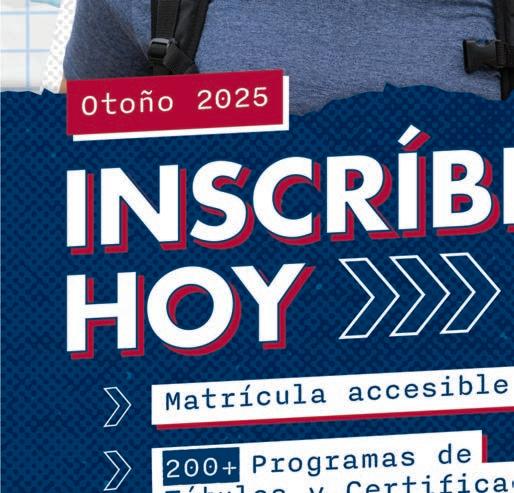
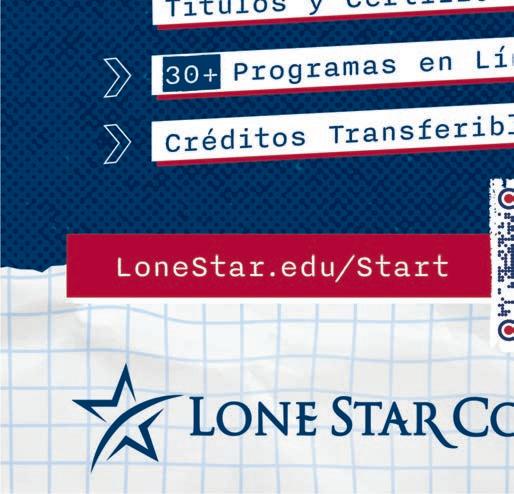


Por:Angela Duplantis
La YMCA del Gran Houston y la YMCA de los Houston Texans tienen el honor de anunciar una donación de $30,000 del patrimonio de los difuntos Juez Carl y Janice Walker. Esta signi cativa contribución brindará apoyo nanciero a adolescentes de la comunidad ird Ward de Houston que cursan sus estudios universitarios.
La donación nanciará las Becas Achievers para 30 estudiantes de último año, ayudando a jóvenes locales a superar obstáculos nancieros y a acceder a la educación superior. Esta donación re eja el compromiso de toda la vida del Juez Walker con el empoderamiento y la educación de los jóvenes, especialmente en comunidades marginadas.

Directiva de la YMCA del Centro Sur de 1980 a 1985. Su liderazgo y apoyo fueron fundamentales para expandir los programas para adolescentes en toda la región. Le apasionaba especialmente Teen Court, un programa cooperativo de la YMCA diseñado para fomentar el liderazgo y la participación cívica entre los adolescentes, así como el programa YMCA
la Universidad del Sur de Texas, donde obtuvo su licenciatura y maestría en economía, seguidas de su Doctorado en Jurisprudencia por la Facultad de Derecho urgood Marshall.
Achievers, que ayuda a los jóvenes a prepararse para el éxito universitario y profesional. Recibiendo varios premios, incluyendo el Premio al Hombre del Año de la YMCA en 1967 y 1996, y el Premio David Allen Memorial en 1996, el Juez Walker era conocido por su profunda compasión y dedicación al servicio público. El Juez Walker se graduó con orgul-


El Juez Carl Walker formó parte de la Junta Directiva de la Asociación de la YMCA del Gran Houston de 1973 a 1978 y fue Presidente de cio público.
su foto y biografía, un perdurable in uencia en la comunidad. nadas.



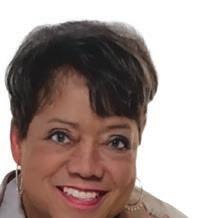




Walker se graduó con orgullo de



“El Juez Walker creía profundamente en el poder de la educación y el liderazgo para cambiar vidas”, dijo Kashala Pope, directora ejecutiva de Liderazgo Juvenil de la YMCA de los Houston Texans. “Su visión continúa moldeando nuestros programas, y esta generosa donación garantiza que su legado perdure en los años venideros”. La YMCA del Gran Houston también honra su legado a través de la Sala Comunitaria Judge Carl Walker en la YMCA de los Houston Texans, donde una gran pared exhibe su foto y biografía, un recordatorio diario de su perdurable in uencia en
Un
día de cacería incluye alojamiento y comida.




A menos de una hora del centro de Houston y de College Station







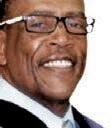
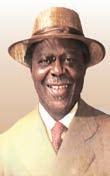
























e Houston Independent School District Purchasing Services Department located at 4400 West 18 th Street, Houston, TX 77092 is soliciting Request for Proposals (RFP) via the District’s electronic bidding portal. Proposers may login to view speci cations and submit their responses at the following link https://houstonisd. ionwave.net/Login.aspx until 10:00 a.m. (CST) Tuesday, May 20, 2025, for the following solicitation:
RFP 25-03-10 Electronic Disposal and Recycling Services
Pre-proposal conferences via Microso Teams will be held in conjunction with this RFP. Information regarding dates, times, and instructions to receive a link to join the meeting can be located within the electronic bidding portal under the “Event Details” tab speci c to this solicitation.


men must enforce laws. However, the law is still the law, and no one is above the law. Sadly, this is why President Trump could be charged with crimes. Convicted in a court of law by a jury of his peers for breaking the law, yet still reelected as President of their country, not his country. What an ungodly shame! America, destroying the rule of law, perverting justice, initiating a tari war with your neighbors/ allies is about mocking the truth, and promoting socio-economic discord rather than peace. Most of all, we should never



By:Angela Duplantis
e YMCA of Greater Houston and the Houston Texans YMCA are honored to announce a $30,000 estate gi from the late Judge Carl and Janice Walker, a meaningful contribution that will provide scholarship support for college-bound teens in Houston’s ird Ward community.
e gi will fund Achievers Scholarships for 30 graduating seniors, helping local youth overcome nancial barriers and pursue higher education. e donation re ects Judge Walker’s lifelong commitment to youth empowerment and education, particularly within underserved communities.
Achievers program, which helps young people prepare for college and career success. Receiving several awards, including the YMCA Man of the Year Award in 1967 and 1996, and the David Allen Memorial Award in 1996, Judge Walker was known for his deep compassion and dedication to public service.
Judge Walker was a proud graduate of Texas Southern University, where he earned both his bachelor’s and master’s degrees in economics, followed by his Doctor of Jurisprudence from the urgood Marshall School of Law.
By:Jarvis Johnson
When did we start expecting so little from our elected o cials? Or perhaps the better question is—have candidates become so underwhelming that voters have simply lowered the bar and settled for whoever yells the loudest?
Running for o ce is one of the only high-stakes jobs in this country that doesn’t require experience, education, or any demonstrated ability to produce results. In today’s political environment, it seems all you need is a recognizable name, a loud voice, and a catchy slogan to win votes. We’ve elected TV
personalities, comedians, athletes—people with little to no experience in governance—because they said something that sounded good or made us feel hopeful.
Every election cycle, candidates from both parties tell us what we want to hear. Democrats, for example, o en declare: “I’m going to ght for you. I’ll ght to expand Medicare and Medicaid. I’ll ght to protect women’s reproductive rights. I’ll ght to fully fund education.” Well—yes. Of course you should. at’s the bare minimum.
But here’s the real question voters should be asking: How are you going to do it? In this hyper-partisan political climate, where Republicans control the House, Senate, Presidency, Supreme Court, and the majority of federal judges—how do you plan to turn your promises into reality?
Republicans have shown they are not just ideologically rm, but o en retaliatory. Trump has openly threatened to withhold funding from colleges and universities





Judge Carl Walker served on the YMCA of Greater Houston’s Association Board of Directors from 1973 -1978 and held the position of Chairman of the South Central YMCA Board of Managers from 1980 - 1985. His leadership and advocacy were instrumental in expanding teen programming across the region. He was particularly passionate about Teen Court, a YMCA cooperative program designed to build leadership and civic engagement among teens, as well as the YMCA



will continue for



“Judge Walker had a deep belief in the power of education and leadership to change lives,” said Kashala Pope, executive director of Teen Leadership, Houston Texans YMCA. “His vision continues to shape our programs, and this generous gi ensures that his legacy will continue for years to come.”








Join us to learn more about the I-45 NHHIP – a transformative project designed to reduce congestion, enhance safety, improve mobility, drive economic and community opportunities, and bolster flood resistance across the Houston region.
This meeting will focus on the proposed design changes in Segment 3C-2 and Segment 3C-3, seeking feedback from the public in an open house format. The Segment 3C-2 project includes the I-10 at I-69 interchange and the project limits are eastbound (EB) to westbound (WB): I-10 from Bringhurst Street to Hardy Street, and southbound (SB) to northbound (NB): I-69 from Commerce Street to north of Lyons Avenue. Segment 3C-3 project limits are I-10 from McKee Street to White Oak Bayou. The meeting will also provide updates on Segment 3 overall, offering the latest updates on construction project activities, and how TxDOT is fulfilling its commitments to property owners, communities, and other stakeholders.
We look forward to your valuable participation!
SEGMENTS 3C-2 AND 3C-3 PUBLIC MEETING
TUESDAY, MAY 13, 2025
5 - 7 p.m.
The public meeting will be conducted in English with Spanish interpretation available. If you need an interpreter or document translator because English or Spanish is not your primary language, or have difficulty communicating effectively in English or Spanish, one will be provided to you free of charge. If you have a disability and need assistance, special arrangements can be made to accommodate most needs. If you need interpretation or translation services or if you are a person with a disability who requires an accommodation to attend and participate in the public meeting, please contact Gabriel Adame, Public Engagement Coordinator, at 713-802-5199 or Gabriel.Adame@txdot.gov, no later than 4 p.m., Monday, May 5, 2025. Please be aware that advance notice is required as some services and accommodations may require time for the project team to arrange. Please note that for the in-person meeting, oversized bags will be checked in at registration and returned upon exiting the meeting.








kugirango mwishyure ibisabishijwe byihutirwa cyangwa niba mufite ubutabera bwo guhumurizwa/guhindurwa ku rurimi. Mandarin: Mandarin (traditional Chinese): 如出席和参与会�需要特殊照顧或需要口譯 /
713-802-5199 Mandarin (simplified Chinese):





Nominate a deserving teacher, counselor, principal, early childhood learning center, school board or school district.









Created in 2002, the H-E-B Excellence in Education Awards was designed to honor and thank outstanding public school professionals. Through this program, H-E-B awards over $780,000 annually to deserving educators who go the extra mile to serve their students and communities. To submit a nomination or application, go to HEBLovesTeachers.com Deadline for nominations September 30























